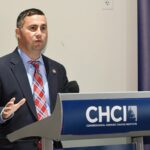By Asha Padmanabhan, MD and Leopoldo Rodriguez, MD
Patients in Florida and across the U.S. have enough complications and costs to worry about when accessing health care. Unexpected medical bills, however, add an unnecessary burden.
Some of these surprise bills show up in the mail weeks, months, or even years after patients receive care that they believed their insurance would cover. Surprise medical billing has created too many headaches for patients and their families for too many years now.
We appreciate Congress’ commitment to finding a solution for this longstanding flaw in our health care system. As Congress evaluates the best legislative solution, it’s crucial that it not create more problems for our nation’s hospitals, emergency rooms, clinics, and health care centers and jeopardize patients’ access to care.
The government rate-setting solution, which is supported by insurance companies, gives insurers the power to dictate network agreements with providers and reimbursement rates. Consequently, insurers will drive the rates to unsustainably low levels, and it will be harder for local hospitals to invest in clinical quality, recruit clinicians, and keep their doors open. What good does it do to protect some patients from surprise medical billing if the rate-setting solution threatens even more patients’ access to care?
Congress should look to incorporate an alternative solution: an independent dispute resolution (IDR) process. In states like New York, a comprehensive IDR process has been proven effective at removing patients from the middle of out-of-network billing disputes between providers and insurers while keeping premiums low. Physicians in the House of Representatives and Senate have proposed draft legislation with this type of process.
IDR enables providers and insurance companies to negotiate out-of-network reimbursement through an impartial, third-party mediator. Not only would this incentivize both sides to negotiate in good faith, but the IDR process would ensure providers receive interim payments that help provide financial stability and security for our nation’s at-risk hospitals and emergency rooms.
The STOP Surprise Medical Bills Act, S. 1531, uses a comprehensive IDR process, and we are hopeful Senator Rick Scott and Senator Marco Rubio will support the proposal to protect patients in Florida and across the nation from surprise bills while maintaining care access and affordability.
Currently, there is a bill in the House that attempts to use a watered-down version of IDR—essentially pairing the process with the misguided benchmarking approach—which should be avoided.
With the House’s legislative approach, IDR would only be implemented if the disputed payment amount is above $1,250—effectively making it useless since more than 99 percent of physician claims are for less than that amount. In reality, this bill is just as bad as a straightforward benchmarking proposal.
As Congress continues to hammer out a solution, those of us on the front lines of patient care hope we can count on Sen. Rick Scott, Sen. Marco Rubio, and Florida’s entire congressional delegation to support a truly IDR-focused approach and incorporate it into the final legislation.
Ultimately, only an IDR process has been proven effective at removing patients from the middle without compromising access to quality care.
Asha Padmanabhan, MD and Leopoldo Rodriguez, MD are both medical doctors living and practicing
medicine in Palm Beach County, Florida.








